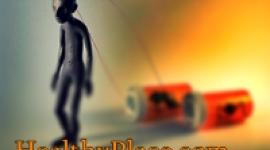Diagnosing a Child with ADHD
Can a preschooler be diagnosed with ADHD? And a 20-year old sadly looks back at opportunities passed by because of ADHD and learning disabilities. What can a parent do to help? ADHD expert, Dr. David Rabiner has some answers.
I've several parents ask about their child being diagnosed with ADHD at three—or even two—and started on medication. I suggest that parents be very cautious about this. Although many children with ADHD will begin to display symptoms at such a young age, it is difficult to diagnose ADHD with any certainty in a child so young. This is because many extremely active toddlers will calm down as they develop and mature. In addition, excessive activity and impulsivity is characteristic of many toddlers, which makes it hard to determine when it is unusual enough to possibly reflect a disorder.
Here is a quote from DSM-IV—the publication that specifies the diagnostic criteria for all psychiatric disorders, including ADHD: "Most parents first observe excessive motor activity when the children are toddlers, frequently coinciding with the development of independent locomotion. However, because many overactive toddlers will NOT (emphasis mine) go on to develop ADHD, caution should be exercised in making this diagnosis in early childhood."
 Now, if parents are having difficulty with a young toddler because of excessive activity and/or other symptoms that may possibly reflect ADHD, it certainly is important for these problems to be addressed. This is true regardless of whether or not that child turns out to have ADHD. In a child so young, however, many mental health providers believe it is more appropriate to begin with non-medical interventions. In fact, the treatment guidelines recently published by the American Academy of Child and Adolescent Psychiatry state the following:
Now, if parents are having difficulty with a young toddler because of excessive activity and/or other symptoms that may possibly reflect ADHD, it certainly is important for these problems to be addressed. This is true regardless of whether or not that child turns out to have ADHD. In a child so young, however, many mental health providers believe it is more appropriate to begin with non-medical interventions. In fact, the treatment guidelines recently published by the American Academy of Child and Adolescent Psychiatry state the following:
"In this age group (i.e. preschoolers), stimulants have more side effects and lower efficacy and should therefore only be used in more severe cases or when parent training and placement in a highly structured, well-staffed treatment program has been unsuccessful or is not possible."
I would urge parents to be cautious about starting their preschooler on stimulant medication and to consult with their child's doctor about non-medical interventions that can be tried. If your child was diagnosed with ADHD at such a young age, and you are uncertain about the accuracy of the diagnosis, you might also want to consider having your child reevaluated.
" 20 year old daughter is feeling really frustrated because she is seeing what she might have become if not for her ADHD and learning disabilities. How can she learn to cope with this?"
This is an excellent and important question and one for which a definitive answer is not possible. I have worked with several adolescents and young adults who struggled with similar frustrations and disappointments. Because of the many difficulties that ADHD can cause, some look back and see years of squandered opportunity. Some individuals in this situation feel confused and uncertain about their ability to successfully handle the demands of higher education, developing a fulfilling career path, and handling the responsibilities of adulthood. This can be especially difficult when peers seem to be moving forward.
I'm afraid that anything I suggest here may sound somewhat trite, but here are some ideas to consider. First and foremost, talking about these feelings can help. Most of us have at least some regrets about the choices we've made or failed to make in our lives, and being able to discuss these openly with a supportive and empathetic listener - whether that be a family member, friend, or professional therapist - can be enormously helpful.
For someone with ADHD, it can be especially important to develop a realistic understanding of how this condition influenced the course of their development and may have contributed to some of their struggles. Although this can not change one's history, this understanding can help protect against unreasonably overemphasizing (e.g. blaming all one's difficulties on the condition) or under emphasizing (e.g. refusing to acknowledge that the disability played any role).
Through these discussions, a young adult can also gain a better understanding of their strengths and weaknesses. Ideally, this self understanding can help guide their future plans in a way that realistically incorporates the role that any ongoing ADHD symptoms could or should play in these plans. When this occurs, shying away from areas where one can succeed should be less likely, as should pursuing paths that may not be ideally suited for one's personality and temperament. This process would not be expected to be something that happens suddenly or even quickly; rather it would be expected to occur over a period of time, and at different rates for different individuals. Ideally, it will help someone develop a perspective on their past that enables them to look towards the future with a greater sense of confidence and purpose.
A very important issue raised by this question concerns a child's understanding of ADHD during their development. In my experience, children are often not told that they have ADHD, or may have heard that they have "it" but have no real idea what "it" is. Some children take medication for an extended period without every really understanding why. In these circumstances, it is not uncommon for a child to have a vague sense that something is wrong with him or her, and the teasing that some children experience when peers find out they take "hyper pills" certainly doesn't help.
My own feeling is that it is quite important for a child with ADHD to have a realistic understanding of what ADHD is and what it means to have it. Parents I have spoken with are often concerned about saying anything to their child because they don't want their child to think there is something wrong with them. When a child is provided with an age appropriate explanation about what it means to have ADHD, however, I believe that this is actually less likely to occur.
This knowledge can also help protect children against teasing they may receive from some insensitive classmates. It may also help them during adolescence and young adulthood when most individuals deal with the important developmental task of deciding about the type of future they hope to build for themselves. Because they have realistically incorporated the awareness of having ADHD into their overall self-understanding, they may be better equipped to deal with this task than if they first begin coming to terms with what it means to have ADHD at this at this time.
Deciding how, or even if, to discuss these issues with your child is an important decision for parents. Several very good books are available to help parents with this task. Among those that I would recommend are Shelley, The Hyperactive Turtle by Deborah Moss (written for children 3-7); Putting on the Brakes by Patricia O. Quinn and Judith Stern (for children 5-10); and Distant Drums, Different Drummers: A Guide for Young People with ADHD by Barbara Ingersoll.
About the author: Dr. Rabiner is Senior Research Scientist at Duke University and Director of Undergraduate Studies Dept. of Psychology and Neuroscience. Dr. Rabiner has extensive experience evaluating and treating children for ADHD and has written numerous published papers on the impact of attention difficulties on academic achievement. He is editor of the Attention Research Update newsletter.
next: Diagnosis, Treatment of ADHD in Very Young Children May Be Inappropriate
~ adhd library articles
~ all add/adhd articles
APA Reference
Staff, H.
(2000, June 1). Diagnosing a Child with ADHD, HealthyPlace. Retrieved
on 2026, February 27 from https://www.healthyplace.com/adhd/articles/diagnosing-a-child-with-adhd


